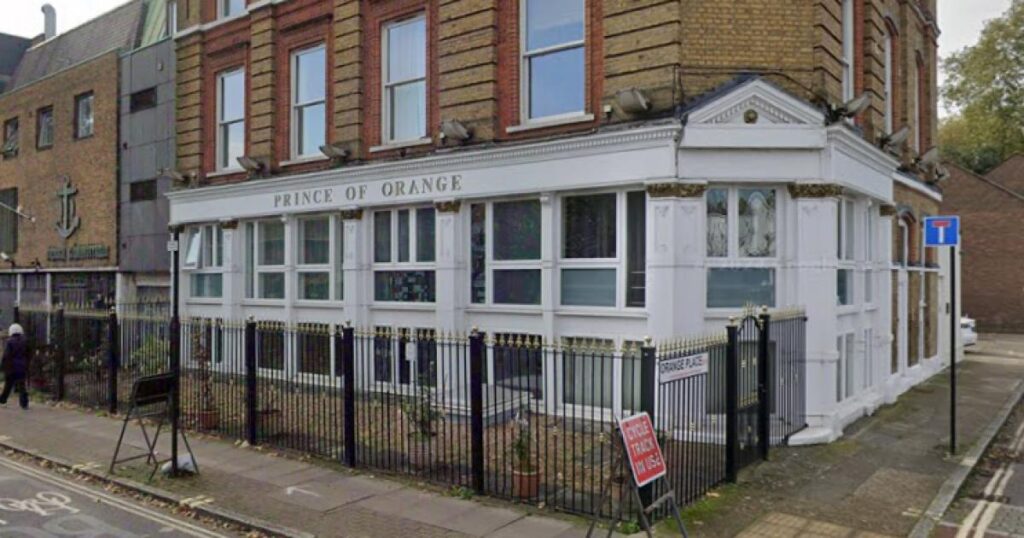The Prince of Orange stood at 118 Lower Road from 1859, but it was the 1970s and ’80s when the pub truly found its stride.
It features in writer Sam Cullen’s book London’s Lost Pubs, which tells the stories of more than 200 vanished watering holes across the capital.
Cullen, who has made it his mission to record these places before their histories are forgotten, describes how the Prince of Orange became one of south east London’s best known jazz venues, attracting big names and dedicated audiences.
Among the performers was pianist and TV presenter Jools Holland in his early days, along with musicians Andy Graham and Chris Barber.
According to the late 1980s CAMRA guide, the pub came highly recommended.
Regulars enjoyed a very high turnover of real ale alongside top tier live music.
The beer was considered pricey for the time but with no entry fee for the big name jazz acts few seemed to mind and the praise did not stop there.
In the early 1990s, writer David Gammell gave the Prince of Orange what could only be described as a rapturous write up, calling it “a jazz freak’s dream” and likening its atmosphere to a “New Orleans Honkey Tonk”.
He even seemed just as enchanted by the crowd as the music, describing how they would “weave, shake and snap fingers… in time to the beat”.
In its later years, the Prince of Orange briefly reinvented itself as a gay venue before closing in the late 1990s.
The building has since been converted into flats, now called Prince of Orange Court, though its pub style frontage and two signs bearing the original name still remain as a nod to its past.
Reflecting on his work, Cullen said: “As much as it’s sad that these pubs don’t exist any more, I wanted to make sure they are not lost to time by telling their stories, their history, and some of the quirky characters who drank in them.”




